|

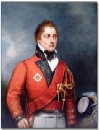
Generals Wellesley & Drummond
35,520 British infantry
12,960 Portuguese Infantry
5760 British Cavalry
104 British artillery
|
Second Battle of Valladolid
Aug 15th, 1809
Great War of Defiance |

Emperor Napoleon
22,080 French Grenadiers (Young Guard)
6,720 French Line Infantry
4,480 French cavalry
24 French Artillery |
For the past two weeks, Wellington had been pursuing Napoleon from the Battle of
Guadarrama and, though near exhausted, he had attempted to follow across the
Douro River at Cuellar. What he found there though was not the battered and
broken army that he had been chasing but instead a Fresh Corps of French
veterans (grenadiers and Young Guard). Wellington was bloodily repulsed but
while that was happening, Castanos was able to send five divisions around the
French left flank to attack Burgos and thereby cut Napoleon's line of
communications to his depot at Bayonne. General Drummond is freshly arrived in
theater at brings 40,000 soldiers to the front. Two days after Wellington is
beaten at Cuellar, Drummond crosses the Douro at Valladolid and seeks to make
his presence felt in theater. He too is surprised to find not the scattered
remnants of the French army but the same veteran divisions of III Corps opposing
him. Wellington is also present but with very few troops. Together, the British
generals would take an aggressive advance, knowing that to drive the French
north is to drive them into a trap for Burgos is in Coalition hands.
The French deploy to the northwest of Valladolid. Wellington knows this ground
well from the battle that he had fought here a month earlier and knows that it
will be difficult to exploit the massive artillery advantage that the British
enjoy in this undulating ground. The 3rd Portuguese Divisions and Cooke's
artillery are not yet arrived but the British attack will go in immediately.
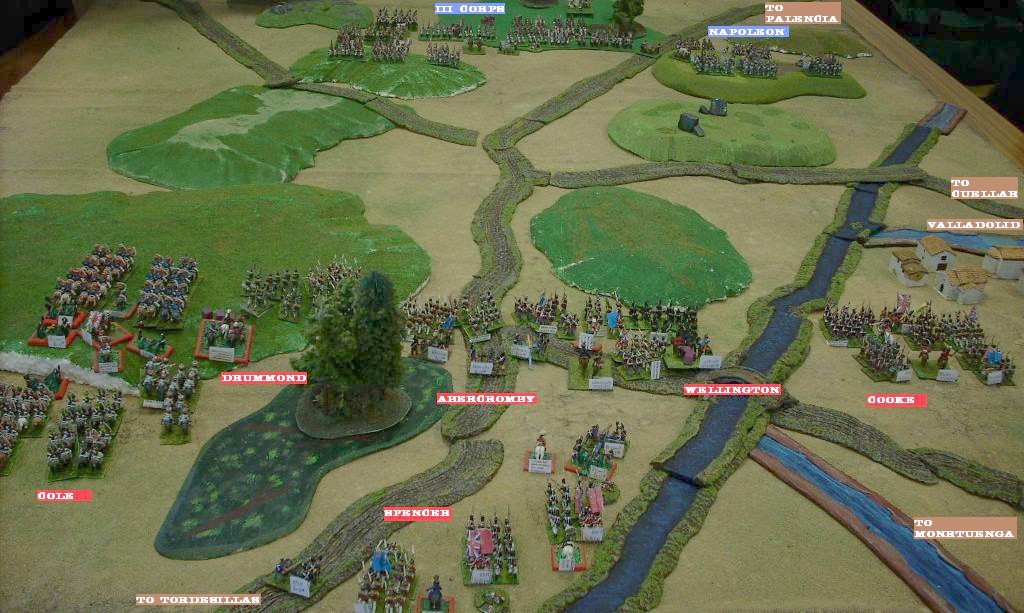
Cole's cavalry is given free rein on the British left, told to try to hook the
French. Cole has questions about the forest that is to the northeast: if he
should go north or south of them but no definite answer is given.

The French right and left wings advance quickly, unexpectedly, and this gives
Cole and Cooke some pause. Abercrombie begins to divert toward the left.
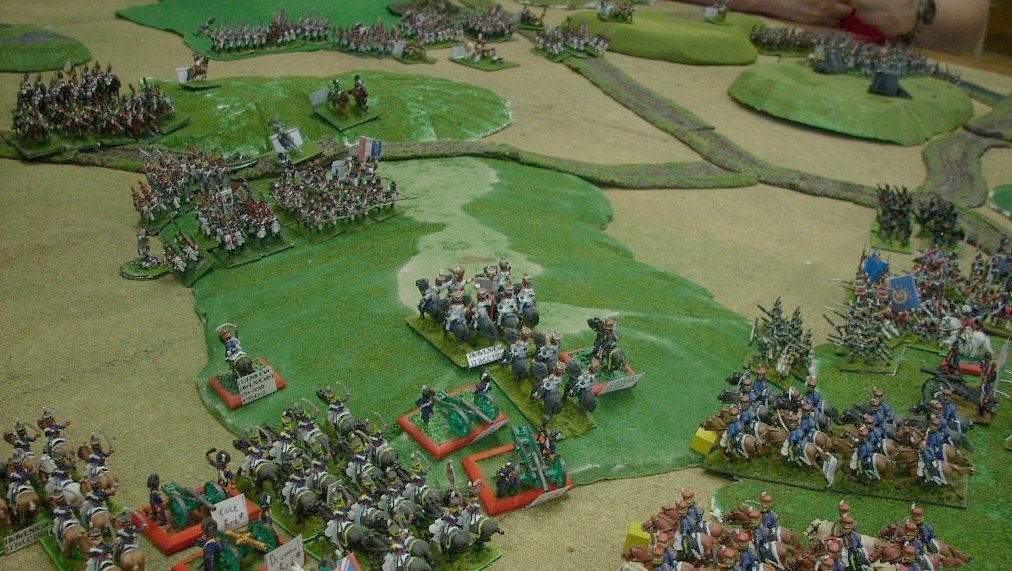
The Portuguese arrive and are sent into the center to close the gap that is
appearing between Abercrombie and Cooke. The French advances turn out to be
delaying actions and both wings retire in the face of British advances. British
artillery is getting no clear targets or even opportunities to unlimber.
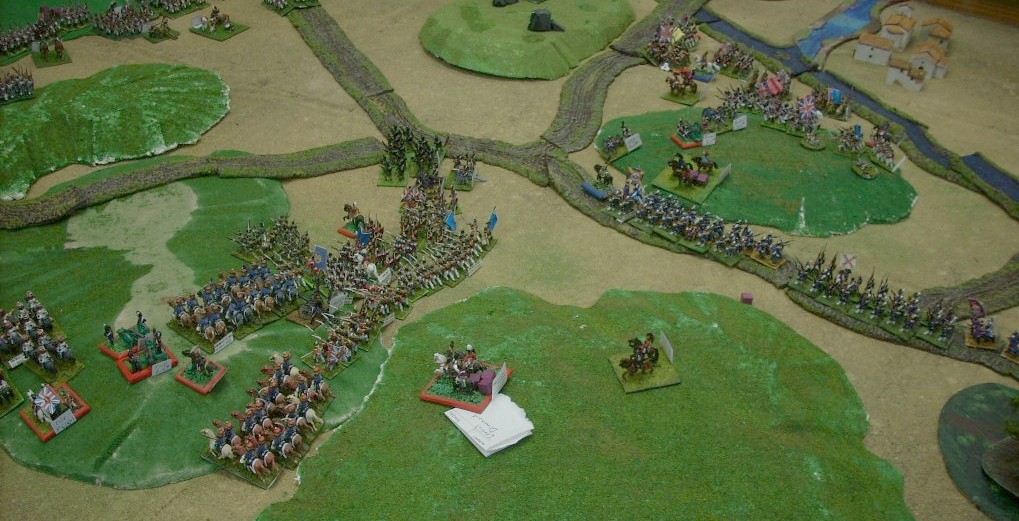
The French form what appears to be a defensive line at the wood's edge.
Abercrombie re-orients himself and prepares to advance up the center.
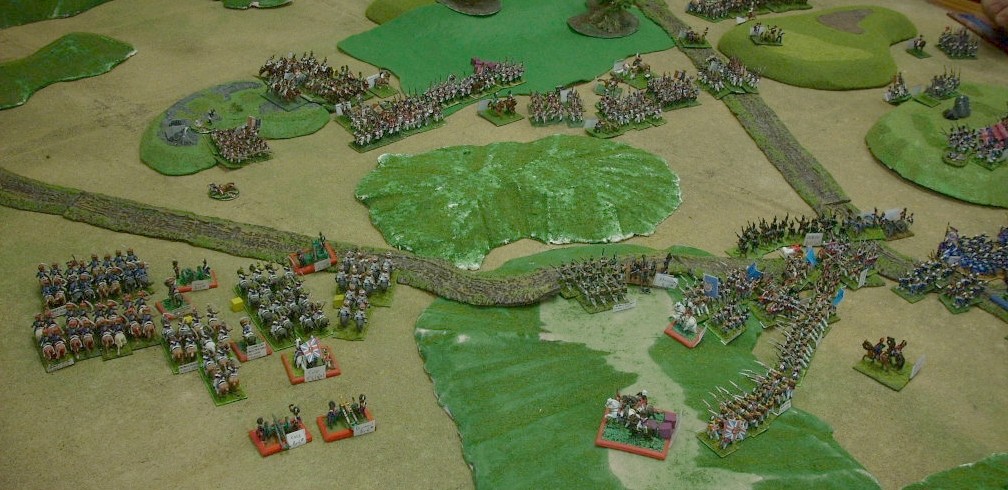
But before Drummond can order the center forward, two brigades of French
Grenadiers charge forward. They would capture an artillery battery and send the
95th scampering to the rear. Before Abercrombie can organize a counter-attack,
the grenadiers would sound the retreat and reform quickly behind the line of
young guard. On the right, Cooke and the Reserve make steady progress against
the French left. Massed British musketry would rout two French brigades.

And the French would continue to fall back, denying Wellington's troops a chance
to get to grips time and time again.
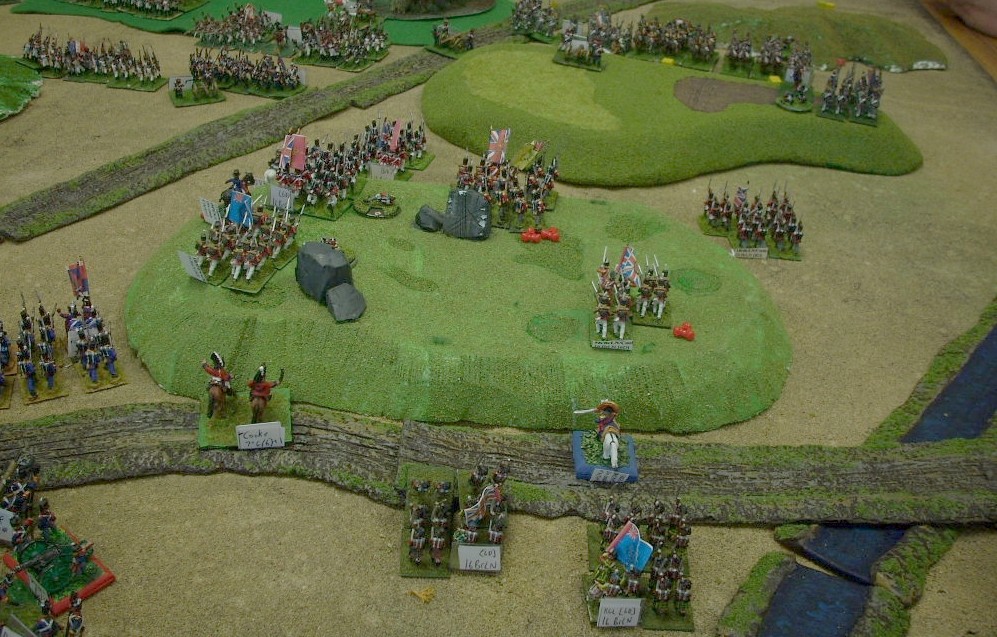
Midway through the day, the British numbers appear overwhelming but they are so
far unable to bring their numbers to bear in a decisive manner.
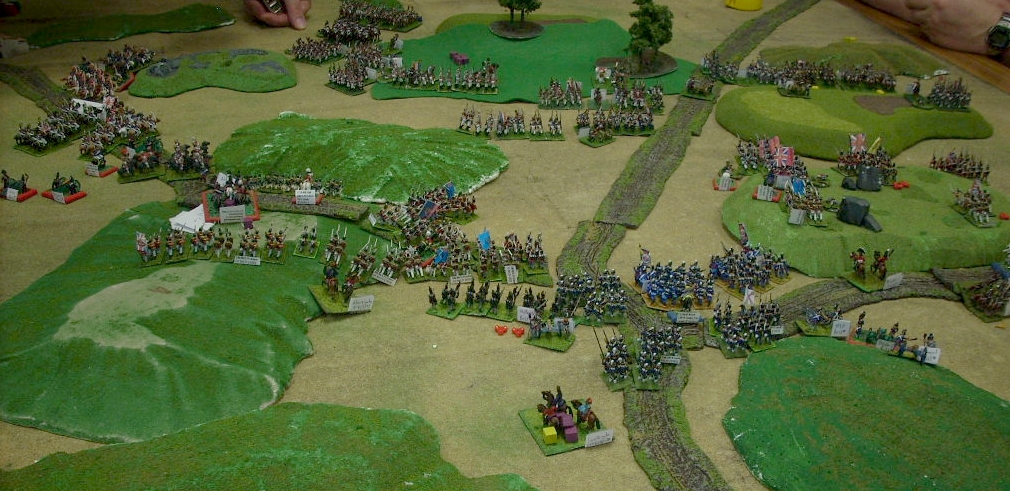
The British grenadiers attack the last hilltop and get to grips with an
artillery battery but French hussars counter-attack. The leading grenadiers
would be sent fleeing to the rear but the following on brigade would manage to
get into square and put an end to the immediate cavalry threat. The attack can
proceed again.

Napoleon becomes alarmed at the possibility that the road to Palencia may be
severed by Cooke and so he orders Kellerman to launch another bold
counterattack. Grenadiers and Young Guard advance all across the center and some
successes are gained. The British attack is stalled temporarily as they
manoeuvre to deal with the French attack.

Cole though sees the French advance as an opportunity that cannot be passed up.
Moments before he had received word that he was to send his cavalry north of the
woods so it was insubordinate when he ordered his cavalry columns to sweep south
of the woods and begin to roll up the right flank of the French grenadiers. The
attack is a great success and it succeeds in sabering a grenadier brigade and
capturing a battery. Three other guard and grenadier brigades would would be
voluntarily retreated out of the crisis point to reform behind the left flank of
the French army.
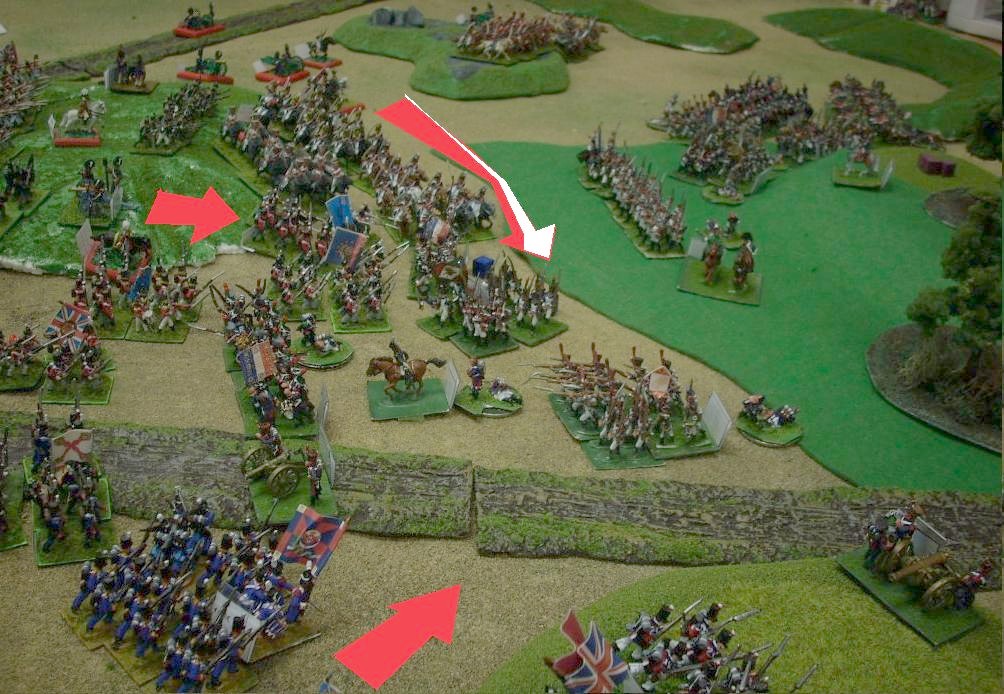
At the end of the battle, Napoleon's force is bruised but able to withdraw in
good order to the north and Palencia. Drummond is frustrated by the inability of
the British to bring their guns to bear on the slippery French and Wellington's
troops notice that they bore the brunt of the fighting for the British.. again.















